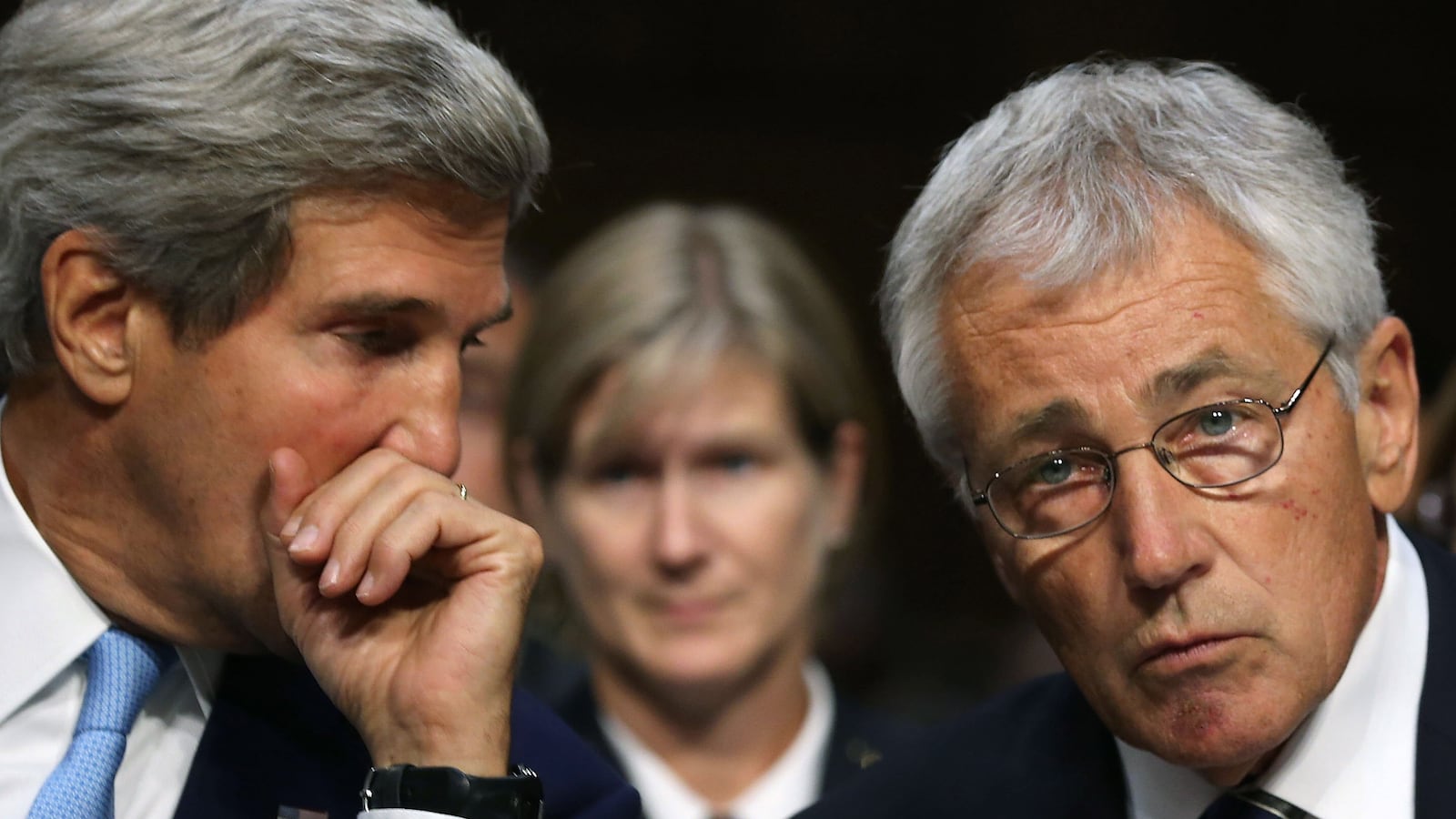The president’s top general, top diplomat, and secretary of Defense on Wednesday will take the case for Syrian airstrikes to the House of Representatives, where they are likely to face a much tougher crowd than the Senate Foreign Relations Committee. While the Senate appears to have the votes to pass the resolution, the Republican-controlled House is still very much a toss-up.

Here’s what you need to know to get up to speed as the president’s war cabinet makes the case for intervention in Syria.
1) Gen. Martin Dempsey isn’t helping Obama’s case. The chairman of the Joint Chiefs of Staff for the last nine months has done his best Colin Powell impersonation. Like Powell in his efforts to stop President Clinton from intervening in the Balkan civil war in the 1990s, Dempsey told Congress until this week that intervention in Syria would be costly and probably not worth it. In a letter from July Dempsey went through five war plans for Syria and said all of them had considerable risks: “Should the regime’s institutions collapse in the absence of a viable opposition, we could inadvertently empower extremists or unleash the very chemical weapons we seek to control,” Dempsey wrote. On Tuesday, Dempsey was not much more helpful to the president’s case for war in the Senate. He contradicted President Obama’s contention from Saturday that delays would not affect the Syria war plan, confirming the Syrian military was adjusting to press leaks about the early plan.
2) House Republicans may not vote with their leaders. On Tuesday, the White House won support from House Speaker John Boehner and House Majority Leader Eric Cantor. That’s good news for Obama. But it’s not clear whether many Republicans will vote with the leadership. House Republican sources say the vote scheduled for next week in the House will be a “conscience vote,” meaning the party leadership will not pressure members to vote one way or the other. One House GOP aide told The Daily Beast, “The only way for this to work is if the president is making the case.” Indeed, the aide said Cantor on Tuesday urged Obama to make a televised address from the Oval Office laying out the broader strategic case for war.
3) John Kerry will need to work his Senate magic. The secretary of State, who as a senator spent days and weeks trying to persuade Bashar al-Assad to leave his patrons in Iran and embrace the West, has been the most forceful voice for war within the Obama administration. On Tuesday, he got a little out in front of his skis, saying at one point that he did not want to rule out sending ground troops to Syria if the regime collapsed. He later said the war resolution would rule out ground troops. Kerry’s job will be to work his magic in the Senate to bring over those senators who still have cold feet while fighting behind the scenes for maximum flexibility for his boss, President Obama. He will be facing a bipartisan push from members of Congress to narrow the war resolution as much as possible.
4) Rand Paul’s arguments resonate with House Republicans. The putative leader of the Tea Party and libertarian favorite had the best sound bites Tuesday in his exchange with Kerry at the Senate Foreign Relations Committee. He asked Kerry why Obama would ask Congress for a war resolution but then say he has the authority to launch airstrikes without such a resolution. “You are making a joke of us,” Paul said. In the House there are more Republicans who agree with the Kentucky senator than in the Senate. But the White House still has to explain why the president would seek a resolution he thinks he does not need.
5) Obama’s case is at odds with itself. On the one hand the president says Assad has committed a moral obscenity against his own people, he has crossed not only a political red line but the kind of boundary on which the civilized world relies. On the other hand, Obama is not prepared to take the action to deter future tyrants, secure Syrian chemical weapons, or topple the regime. So while he employs the language of President George W. Bush, he is left with the policy options of President Clinton. That means Congress will be voting for what used to be called “cruise missile diplomacy” against a dictator who the president says gassed his own people.






